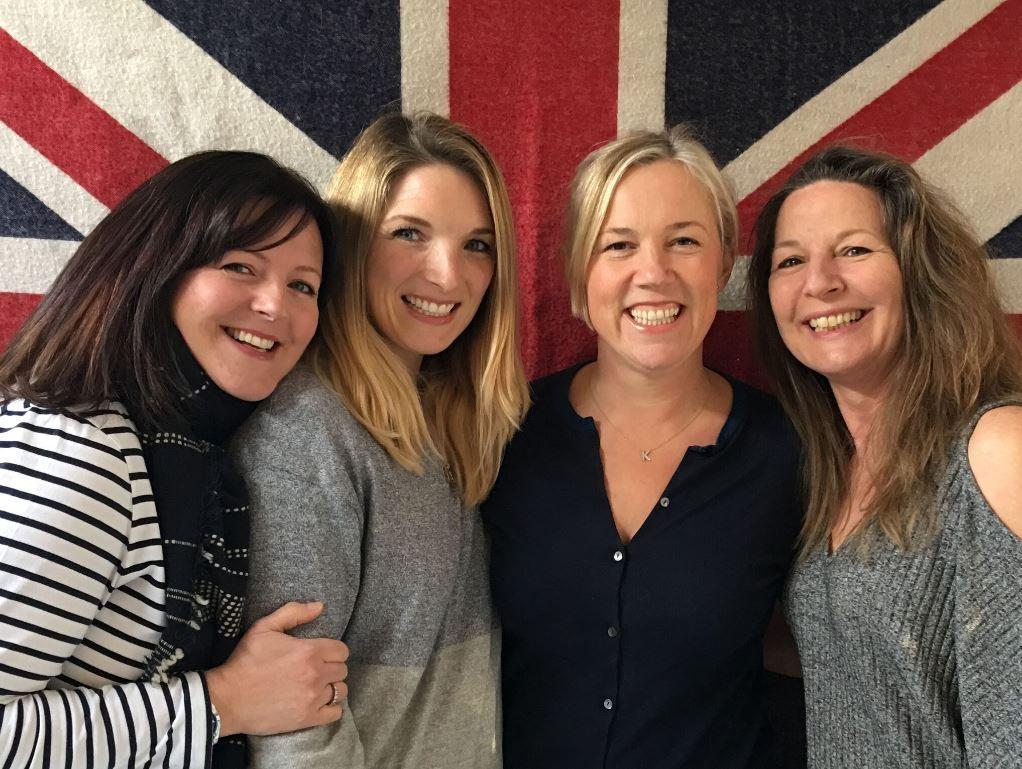Entrepreneur left her high-flying job to support small British manufacturers and business is booming after Brexit
International Women's Day 2017 - The Make it British team is made up entirely of mums, many of whom felt pushed out of their jobs by inflexible employers after having children

For years, Kate Hills lived a jet-set lifestyle, flying round the world – to Los Angeles, San Tropez, Rio – spotting the latest fashion trends as a buyer for Burberry, Marks & Spencer's and other big high street names.
But after the birth of her first child, her perspective changed. Like thousands of others, Hills felt her employer didn't do enough to help fit a high-flying career around the demands of a new family.
Hills is not alone: around 54,000 new mothers feel pushed out of their jobs each year, according to the latest research from the Equality and Human Rights Commission.
So Hills started studying an MA in online marketing while writing the 'Make it British' blog as “a way to keep her hand in with what was going on in the fashion industry”. Six years later, it has become a thriving business.
The company promotes UK manufacturing and British-made brands, bringing together the best of British designers, buyers, retailers and manufacturers.
Two key factors have helped in its success. One is a renewed interest in local UK manufacturing that has intensified after the Brexit vote. But its main strength, Hills says, is that all her employees are hard-working mums.
“The majority of the women who are working for Make it British are doing so because the employer that they were working for before they had a child was then inflexible when they wanted to go back,” Hills says.
Despite advancements in recent years such as a new legal requirement to consider “reasonable” requests for flexible working, the EHRC’s research found that 11 per cent of women reported having been dismissed, made compulsorily redundant or treated so poorly they left their jobs after having a baby.
It’s because of statistics like this that flexibility is so central to Make it British’s business.
“Everyone puts in the hours, the work gets done and we still have time to go to the sports days, the Christmas concerts and to juggle around school holidays and sick children,” says Hills, who still puts in 60-hour weeks at work when needed.
Around 80 per cent of the hundreds of businesses the team supports are also run by women. Most are small, creative businesses – the kind that Hills says don't get enough support from the Government.
“Industrial strategy tends to focus on larger manufacturing industries, big factories and engineering rather than businesses like textiles which is made up of a lot of micro-businesses, rather than a few big players,” she says.
On Brexit, Hills says: “We’ve had thousands of people contacting us since the referendum, saying ‘I want to buy something from the UK. Where can I find a British-made kettle, toaster, shoes?’”
There has also been an increase in UK brands saying they want to source more within the country, she adds. One factor is a favourable exchange rate, but it’s certainly not the only reason.
Brands also want to get things to market much more quickly to stay on top of rapidly-changing trends, Hills says. That’s not easy to do with a long and cumbersome supply chain that stretches around the world.
Economies of scale offered by cheap labour in places like Bangladesh may also be becoming less appealing as people increasingly value uniqueness, Hills says: “Brands don’t want to be making things in the thousands any more, because no one wants to be wearing the same as everyone else.”
“But if there’s one main advantage of making it in the UK its that it’s much easier for everyone to collaborate. As a buyer, I know that’s a huge advantage.”
Business news: In pictures
Show all 13This is why she set up the annual Meet the Manufacturer trade show, which brings together British designers, garment manufacturers, textile firms and homeware suppliers.
“In my old job, I remember being in meetings with a British supplier who we had built a relationship with,” Hills recalls. “I had to tell them, ‘Sorry, we can’t deal with you any more, because we can make this product for a quarter of the price in China.’ I hated it.”
Several years later, that very same supplier’s business is now thriving. In fact, they just got back in touch with Hills – to buy a pitch at her trade show.
Subscribe to Independent Premium to bookmark this article
Want to bookmark your favourite articles and stories to read or reference later? Start your Independent Premium subscription today.

Join our commenting forum
Join thought-provoking conversations, follow other Independent readers and see their replies